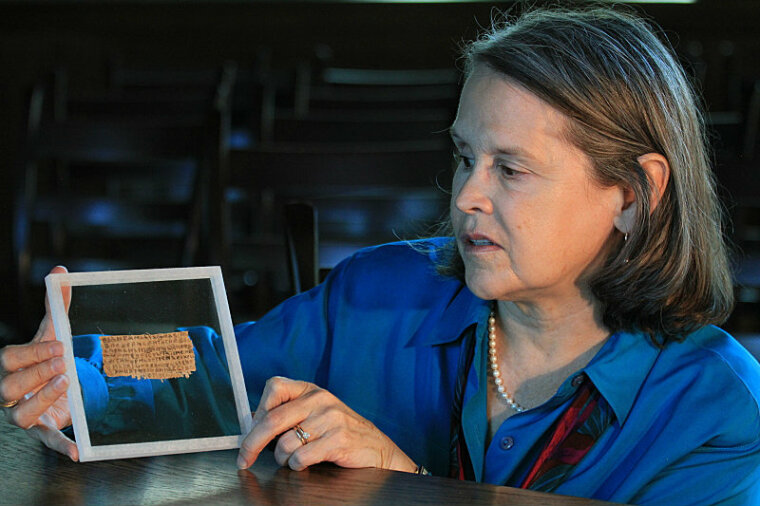BREAKING: Harvard researcher admits 'Gospel of Jesus's Wife' likely a forgery

BOSTON (Christian Examiner) – Most biblical scholars surmised four years ago that the "Gospel of Jesus's Wife" – the text fragment written in ancient Coptic that supposedly called Mary the wife of the Savior – was a fake.
Now, the Harvard professor who invested nearly four years of work on the fragment and has defended it in publications and conferences has reportedly also come to the conclusion that the story may have been created out of whole cloth, or at least out of Egyptian papyrus.
The Atlantic reports that Karen L. King, who teaches Ecclesiastical History at Harvard, is tacitly backing off of her stance on the fragment's authenticity after reading the magazine's exposé on the origins of the scrap of Coptic text.
"It tips the balance towards forgery," she told the magazine after reading the investigative report.
In that report, journalist Ariel Sabar dismantles the narrative of authenticity by going on a multi-state and international search to discover the fragment's provenance – a term used by scholars to reference a chain of custody and, ultimately, the origin of an artifact.
King, for her part, never spoke much about how she had received the fragment, but when she first showed it publicly multiple scholars repudiated the text as a clumsy forgery based on its poor Coptic grammar, some apparent "overstrikes" (writing a new letter over an existing one), and some apparent additions. That didn't mean that the papyrus itself wasn't old, or even that the ink wasn't an ancient recipe. It simply meant that whoever wrote the text in ancient Coptic letters was likely not an ancient Coptic.
King still wanted to pursue the study of the manuscript. If authenticated, it would have enormous implications on Christian scholarship and especially on her field – the study of women in the early church. King was invested in showing women played a larger role than they've received credit for in the history books.
However, there were signs from the beginning that there might be problems. King admits now that she knew little about the owner of the manuscript who had made it available for her to review.
His name was Walter Fritz, a native of Germany living in Florida who had once studied and, it turns out, written about ancient manuscripts at Free University's Institute of Egyptology. He had also studied Coptic.
Fritz presented himself to King as a well-rounded, wealthy family man, who had obtained the manuscript fragment from other parties in Europe. But he never disclosed his educational past or provided legitimate documentation to prove his reception or ownership of the text.
Sabar tracked Fritz to Florida where she found that the man was the owner-operator of an erotic art company and had worked as a pornographer (with his wife in the lead role of the films). His wife, Sabar writes, had also "written a book of 'universal truths' and claimed to channel the voices of angels."
It turns out that Fritz had registered multiple website names in the weeks before the unveiling of the text fragment, including one specifically named www.gospelofjesuswife.com. The domain name was registered when only he and King knew that the fragment would publicly be given that name.
"I had no idea about this guy, obviously," King told The Atlantic. "He lied to me."
According to the magazine's copiously detailed report, King is not ready to dismiss completely the "Gospel of Jesus's Wife." To do so, she said, she needs to build scientific consensus that the text is a forgery – or obtain a confession.
Part of her, she told the magazine, still believes it is "theoretically possible" that the so-called gospel is authentic, despite the fact that its story of how it was acquired has fallen apart and the history and credentials of the man who provided it have proven fallacious.
That evidence, despite what she wants, "presses in the direction of forgery," King said.
Click here to read Sabar's full investigative article in The Atlantic on Walter Fritz and the "Gospel of Jesus's Wife."